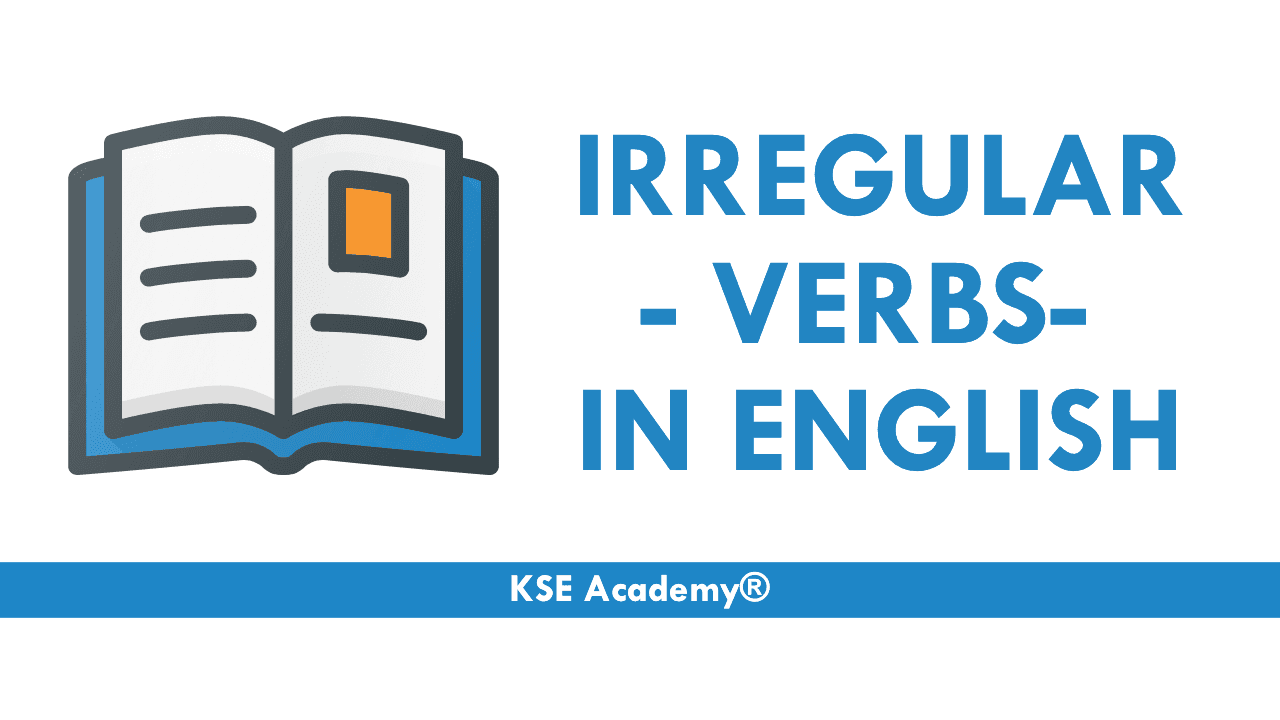The English language contains a large number of irregular verbs. In fact, the dozen or so most frequently used verbs are all irregular. If English is not your first language then this can be tricky to learn and remember them all – but it will make a huge difference to your communication skills in English.
With almost 200 irregular verbs in English (verbos irregulares en inglés, in Spanish), and considerably more if prefixed forms are counted it can seem like quite a challenge. Grammar is so important in the English language, and notoriously difficult for non-English speakers to learn.
What is the difference between regular and irregular verbs?
Regular verbs are quite simple – they always follow the same pattern. If you want to use the past form of the verb you simply add -ed to the end of the word. For example ‘smile’ becomes ‘smiled’ and ‘close’ becomes ‘closed’.
Irregular words are different they have their own rules when forming a past simple or past participle. For example ‘see’ becomes ‘saw’ or ‘fly’ becomes ‘flew’.
With so many irregular verbs in English , it is not really necessary to memorise all of them, but it is well worth learning the most common when you are starting out.
- Say, said, said
- Go, went, gone
- Come, came, come
- Know, knew, known
- Get, got, gotten
- Give, gave, given
- Become, became, become
- Find, found, found
- Think, thought, thought
- See, saw, seen
Where do the irregular verbs come from?
Wouldn’t it be a lot simpler just to change the language to make all the verbs follow the same pattern? In theory yes, but language is more complicated than that. English in particular is a melting pot of all the languages used by various invaders during the formation of the language.
Almost all irregular verbs are for Old English – derived from germanic roots. It is part of the heritage of the language and the people and are incredibly important from a culture perspective.
How to learn irregular verbs when studying English
It is a question that every single learner of English will ask at some point during their studies. The simple answer is memorise them. There is no special rule or pattern you can learn that will tell you how to conjugate each irregular verb.
But the good news is that practice will help. Reading and writing is a great start. It can really help you to start recognising and in turn using the irregular verbs. From there you can watch English TV shows or movies, or practice with other learners and it will become easier.
You can even approach it in several ways. For example grouping common irregular verbs together. For example, verbs that remain the same in the present, past and past participle, such as ‘cost’ and ‘set’.
Then you have verbs that are same in past forms, but not in the present, like ‘breed’ and ‘bred’. And finally verbs that end in ‘-en’ in the past participle such as ‘speak’ and ‘spoken’. These are just some suggestions.
Some other hints and tips for learning irregular verbs
One way that might be easier for some learners is to try and learn irregular verbs as part of a sentence. This will help give some context to the conjugation and may help it stick in your mind for longer. Creative weird sentences will be easier to remember, for example ‘ I saw the unicorn, I see the forest, but I have never seen the unicorn in the forest’. This also works when using songs, whether making up little jingles for yourself, or using some of the many resources available online.
Whatever method you choose, it will be well worth the effort. By putting in the work with irregular verbs early you will find yourself picking up the rest of the language far more easily and quickly.
La entrada Mastering irregular verbs is one of the most important things you can do when learning English aparece primero en KSE Academy | Academia de inglés.
from KSE Academy | Academia de inglés https://ift.tt/2C8lTHI

No comments:
Post a Comment